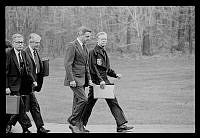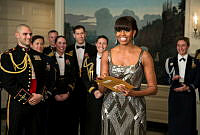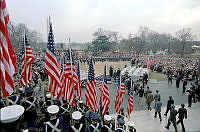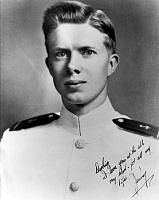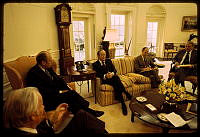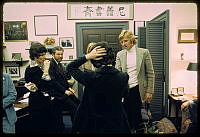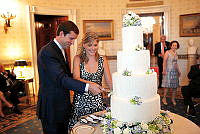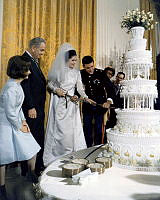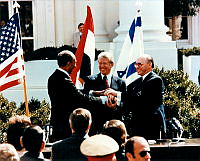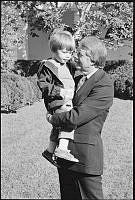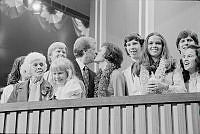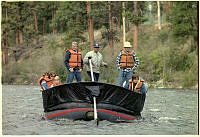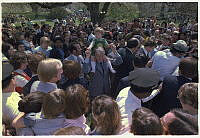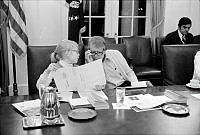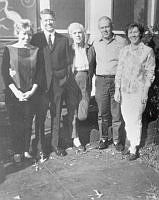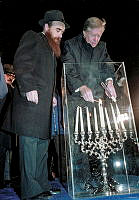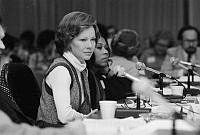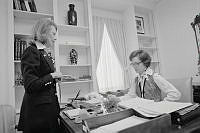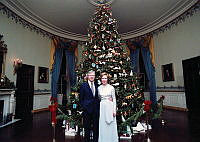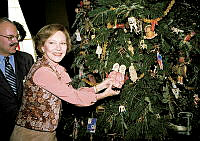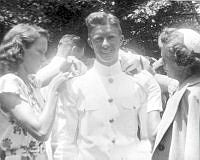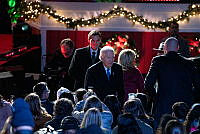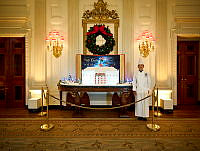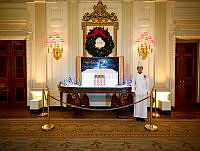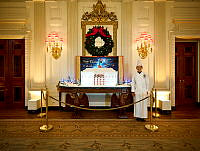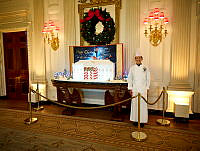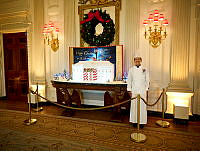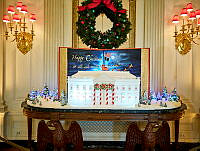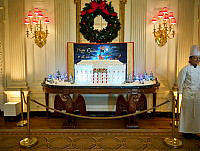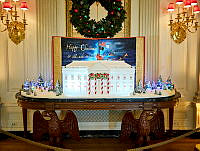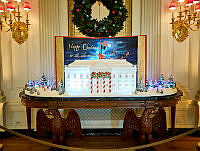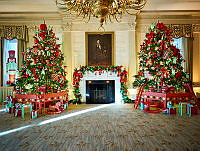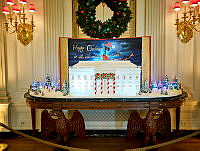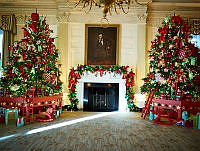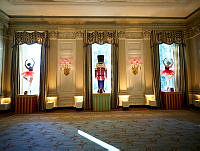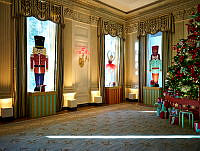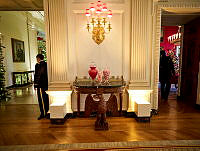George H. W. Bush

George H. W. Bush brought to the White House a wish to make the United States “a kinder and gentler nation.”
Coming from a family with a tradition of public service, George Herbert Walker Bush felt the responsibility to make his contribution both in time of war and in peace. Born in Milton, Massachusetts, on June 12, 1924, he became a student leader at Phillips Academy. On his 18th birthday he enlisted in the armed forces. The youngest pilot in the Navy when he received his wings, he flew 58 combat missions during World War II. On one mission over the Pacific as a torpedo bomber pilot he was shot down by Japanese anti-aircraft fire and then rescued from the water by a U.S. submarine. He was awarded the Distinguished Flying Cross for bravery in action.
In January 1945 Bush married Barbara Pierce. They had six children: George, Robin (who died at three), Jeb, Neil, Marvin, and Dorothy. After graduation from Yale, Bush embarked on a career in the Texas oil industry.
Like his father, Prescott Bush, who was elected a senator from Connecticut in 1952, George was interested in politics. He served two terms as a representative to Congress from Texas. Twice he ran unsuccessfully for the Senate. Then he was appointed to a series of important positions: ambassador to the United Nations, chairman of the Republican National Committee, chief of the U.S. Liaison Office in the People’s Republic of China, and director of the Central Intelligence Agency.
In 1980 Bush campaigned for the Republican nomination for president. He lost, but Ronald Reagan chose Bush as his running mate. In 1988 Bush won the Republican nomination for president and defeated Massachusetts Governor Michael Dukakis in the general election.
Bush faced a fundamentally changing world as the Cold War ended. The communist empire broke up, and the Berlin Wall fell. The Soviet Union ceased to exist. With his considerable foreign policy experience and his gift for personal diplomacy, Bush developed a relationship with Soviet President Mikhail Gorbachev that enabled collaboration and a reduction in strategic nuclear weapons.
President Bush also sent American troops into Panama to overthrow the corrupt regime of General Manuel Noriega. In 1990 Iraqi dictator Saddam Hussein invaded Kuwait, then threatened to move into Saudi Arabia. Vowing to free Kuwait, Bush rallied the United Nations and sent 425,000 American troops to the area as part of an international coalition poised to wage “Operation Desert Storm.” After weeks of air and missile bombardment, a 100-hour land battle routed Iraq’s million-man army.
Despite soaring popularity from the Desert Storm victory, Bush was unable to surmount uncertainty about the economy and the urge for change after 12 Republican years in the White House. In 1992 he lost his bid for reelection to Democrat Bill Clinton.
Nevertheless his sons George and Jeb became governors of Texas and Florida. When son George ran for president in 2000, his father told voters, “This boy—this son of ours—is not going to let you down.” George W. Bush’s election made his father the second president in history, after John Adams, to witness a son elected president. Years later, when the latter President Bush was criticized, family members noted that the proud patriarch took the barbs more emotionally than the criticism once directed at himself.
George H.W. Bush passed away on November 30, 2018 at the age of 94.













